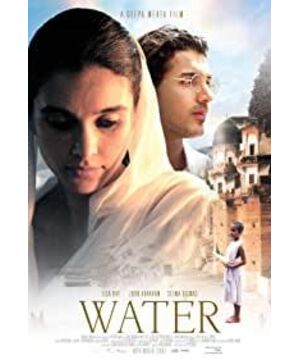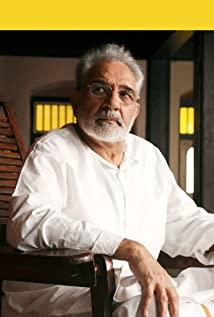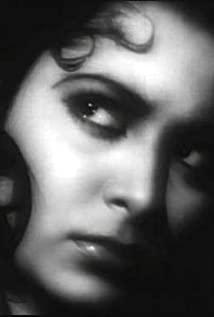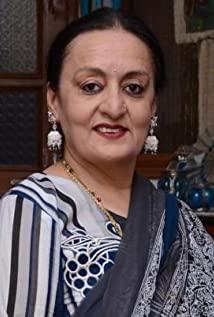This is an Indian/Canada movie full of revolutionary emotions. A river separates the two worlds of India, and on this side of the river, religious tradition confines widows in the closed world of monasteries. Religious traditions deprive them of the love of ordinary people, and they will spend the rest of their lives serving the gods. On the other side of the river, there are nobles and clergy who have high religious status but are not bound by religious and moral creeds. Because they possess the ability to interpret the sacred scriptures at will to serve their own selfish desires.
However, the widows in the temples on this side of the river did not live a purely holy religious life. In order to survive, they had to send their young and beautiful widows to the other side of the river to serve the lustful pleasures of noble people. For thousands of years, this tradition has been upheld as a divine command, like a clock, ticking back and forth in an orderly fashion, until a man named Gandhi stood up and said, "For a long time, we thought that God was The truth, but now we find that the truth is God."
But how powerful are the new ideas from Gandhi in India, a society with stubborn religious traditions?
The film tells the tragic story of a young widow named Kaliana. The young man from the mansion on the other side of the river fell in love with this Widow Kaliana, and of course, she fell in love with him too. Although strong resistance from the temple was not enough to stop their determination to come together, one thing held Kaliana back because she was forced to sacrifice her own body to the father of the young man across the river. The horny one. Kaliana broke through the shackles of religious concepts and traditions, but was defeated by the shame of human nature. She couldn't go to the other side, and she couldn't go back to the temple, so she had to drown herself in the river, using death to escape this world where she had nowhere to live.
Her death was a big shock to the widows and sisters in the temple that abide by religious regulations. When Kaliana's friend, Chuya, the youngest widow in the temple, suffered the same fate and was sent to the other side of the river, One of the enlightened widows put Chuya in the Fires car following Gandhi. Chuya is liberated from dark religious traditions.
At the end of the film, a line of subtitles shows that until today, tens of millions of Indian widows have suffered the same fate. That is to say, nearly a hundred years after the ideological revolution initiated by Gandhi, the stubborn religious tradition is still a powerful and decisive force in Indian society.
While many Chinese intellectuals today are envious of India's well-preserved traditional values, we don't know that there are many intellectuals in India who are envious that we have launched a thorough revolution and thus largely wiped out The dark and decadent feudal hierarchy.
This dislocation of mutual envy between Chinese and Indian intellectuals makes me feel a little emotional when I think about it. It makes one have to rethink what a revolution is, why it is necessary, and what is the real reason for a revolution.
The Marxist mood of the film is palpable. The reason for the revolution is given through the mouth of the Gandhi-minded follower who fell in love with Kalyana in the mansion across the river: the widow sent to the temple saves money for the family, religion is just an excuse , there is no other reason for their bleak situation than financial motives. In other words, the liberation of man is the liberation of man's economic/social status, and there is no liberation beyond that.
In other words, if it is economic motives that keep the Kalyanas from enduring their tragic lives, the only way for them to be liberated is for them to move towards modern society and gain economic and political autonomy. And the only reason to launch a revolution for this is that "there has never been a savior, it's all up to us".
But is the question really that simple? Let's go back and look at our society. After a revolution, we have driven away all traditional concepts and moral standards of "savior", and the economic dependence of slaves and slave owners is no longer common in our society. Our women can no longer be trapped in Indian religious creeds. But have our women (including each of us) been liberated? no. Man is a kind of man who inevitably has to live in a certain situation. No matter how revolutionary it is at the beginning, any situation will eventually degenerate into a force that enslaves people and becomes an enemy of people. The revolution freed our women from being trapped in a religious and moral tradition. In the post-revolutionary era, our women were trapped in an immoral, non-traditional predicament; As widows, they are thrown into a state of extreme anxiety and insecurity because they live in a society with absolutely no traditional values.
Regarding the attitude of traditional values, the famous saying "remove the rough and extract the essence, remove the false and preserve the true" always sounds correct, but who can judge what should be kept and what should be discarded, which has become a question again. "It's up to you", the film says through Kaliana's mouth. In other words, it is up to each person's own conscience to decide. But the question is, does an individual have the power to make such a decision? Didn't Kaliana rely on her own courage to make a decision only to be defeated by her own inner struggle?
It can be seen that the plight of mankind cannot be easily resolved without the economic and social revolution of the outside world, and the liberation of the individual cannot be discussed without the economic and social revolution. The emancipation of man is a complex and eternal struggle that never ends.











